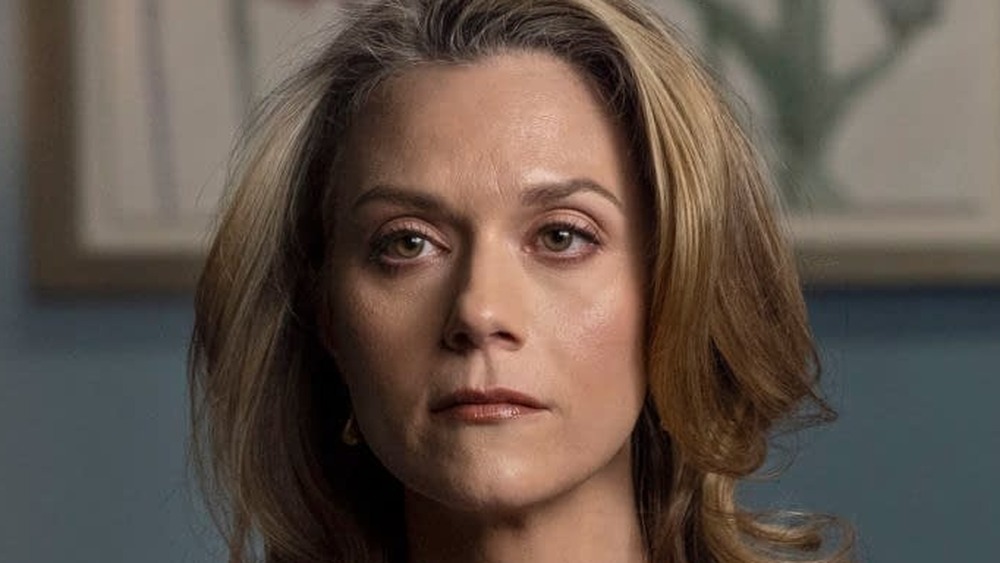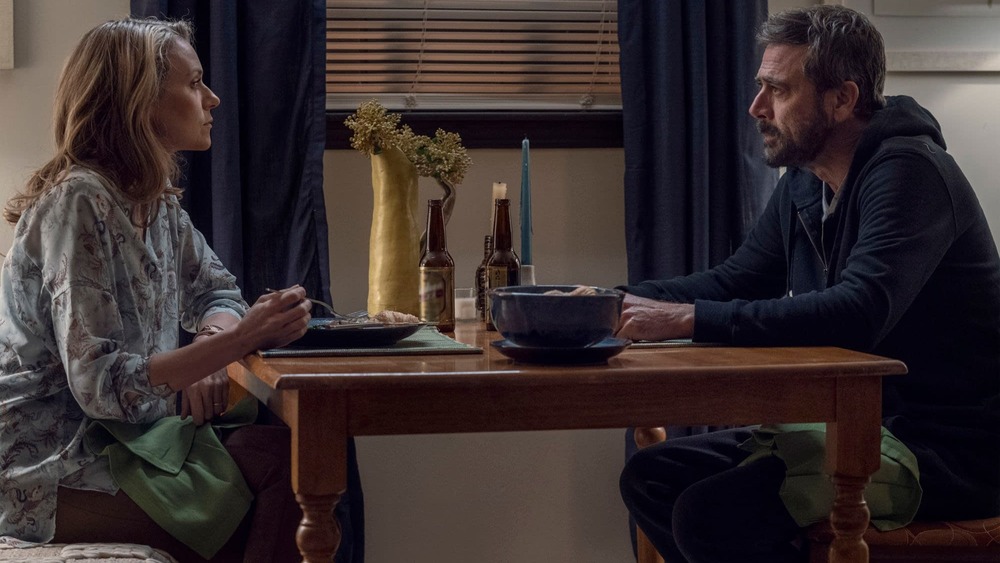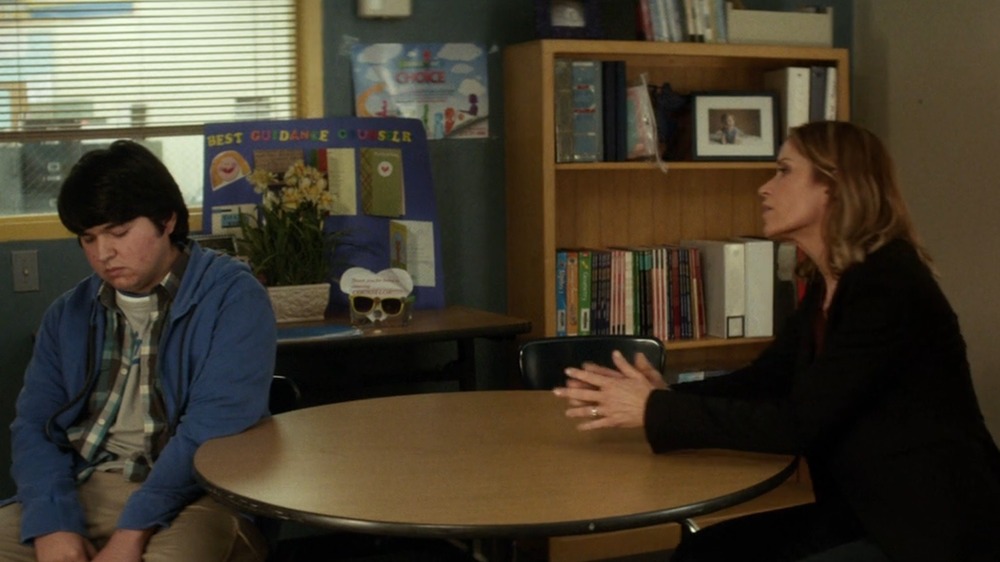The Disturbing Truth About The World Of The Walking Dead Pre-Apocalypse
On AMC's long-running apocalypse drama The Walking Dead, viewers get a first-hand look at what life is like for people in the aftermath of a societal collapse caused by a mysterious virus that turns the dead into flesh eating monsters. But the series doesn't begin right at the beginning. In the pilot, "Days Gone By," we enter the post-collapse world several months after everything begins to fall apart when our protagonist, Rick Grimes (Andrew Lincoln), awakens from a coma.
Through flashbacks in the main series, as well as the spin-off Fear the Walking Dead, which begins in the days leading up to the collapse, viewers have gotten glimpses of what life was like right before everything went to hell. One thing that becomes clear is that the apocalypse wasn't a singular event. Some people did experience it or remember it as a day when everything suddenly changed, including, for instance, characters on the spin-off The Walking Dead: The World Beyond who refer to it as "The Night the Sky Fell." However, that doesn't mean that there weren't signs long before the collapse happened that something was amiss.
In the finale of The Walking Dead's season 10C, titled "Here's Negan," viewers got more insight into what the earliest stages of the viral outbreak looked like before everyone became aware of what was going on. The idea of one apocalyptic day that changes everything is scary. However, what's arguably even more disturbing is the fact that the effects of the virus moving through the population were already being seen long before things collapsed, but few people seemed to notice.
Reports of deaths caused by walkers were happening before society collapsed
There are several flashbacks in "Here's Negan" that take viewers into the early days of the apocalypse. In the midst of those, we also get one that goes seven months further into the past, before things fell apart.
Everything in this pre-apocalypse flashback seems normal. That is, until we get a scene of Lucille (Hilarie Burton-Morgan), Negan's (Jeffrey Dean Morgan) late wife and namesake of his signature baseball bat, turning on her car. When the radio comes on, we hear a news anchor say, "In all cases, the killers are eating the flesh of the people they kill." The details of that report aren't elaborated on further, but given the timeline, it seems likely that what's being described are attacks by walkers that were happening before knowledge of the virus became widely known.
When the Atlanta group visited the CDC way back in season 1 of The Walking Dead, we learned that scientists were aware of the virus for a significant period of time before it brought down society. In this scene with Lucille, we get an idea of what the early stages of the outbreak looked like to the rest of the public. Without context, the walker attacks would have seemed like bizarre murders. The reports of them would have been disturbing, but not necessarily something people would have paid much attention to.
However, as the situation progressed, it's clear that more people started to become aware that something bigger was going on. A moment from Fear the Walking Dead's first episode provides a little more context to this early, unsettling stage of the outbreak.
Some people knew the end was near, but they weren't believed
One of the eeriest moments in the pilot of Fear the Walking Dead is a scene between guidance counselor Madison (Kim Dickens) and one of her students, Tobias (Lincoln A. Castellanos). She catches him with a knife and assumes he brought it to school because he's being bullied. However, it's not some schoolyard ruffians that he's trying to protect himself from.
When she confronts him about the knife, he tells her, "They say it's not connected. They say that, but I don't believe them. It is. Reports in five states. They don't know if it's a virus or a microbe, they don't know, but it's spreading."
It's clear that like Lucille, Tobias has been hearing reports of strange murders, as well as the possible connection to a mysterious virus. Madison's response implies that she's also aware of the reports, but that she believes Tobias' concerns are nothing more than a predilection toward catastrophizing and conspiratorial thinking. She tells him, "You need to spend less time online," and even says, "If there's a problem, we're gonna know about it. The authorities would tell us."
Of course, Tobias was right to be worried, but sadly for him, it wasn't until things were truly out of control that everyone else saw what he did. These scenes give us a chilling insight into how the apocalypse slowly unfurled unbeknownst to most of the public. Some people merely turned off the radio when they heard the odd details, while others were driven into frenzied paranoia. Unfortunately for everyone, once the virus started making its way through the population, it was only a matter of time before it brought civilization to its knees.


